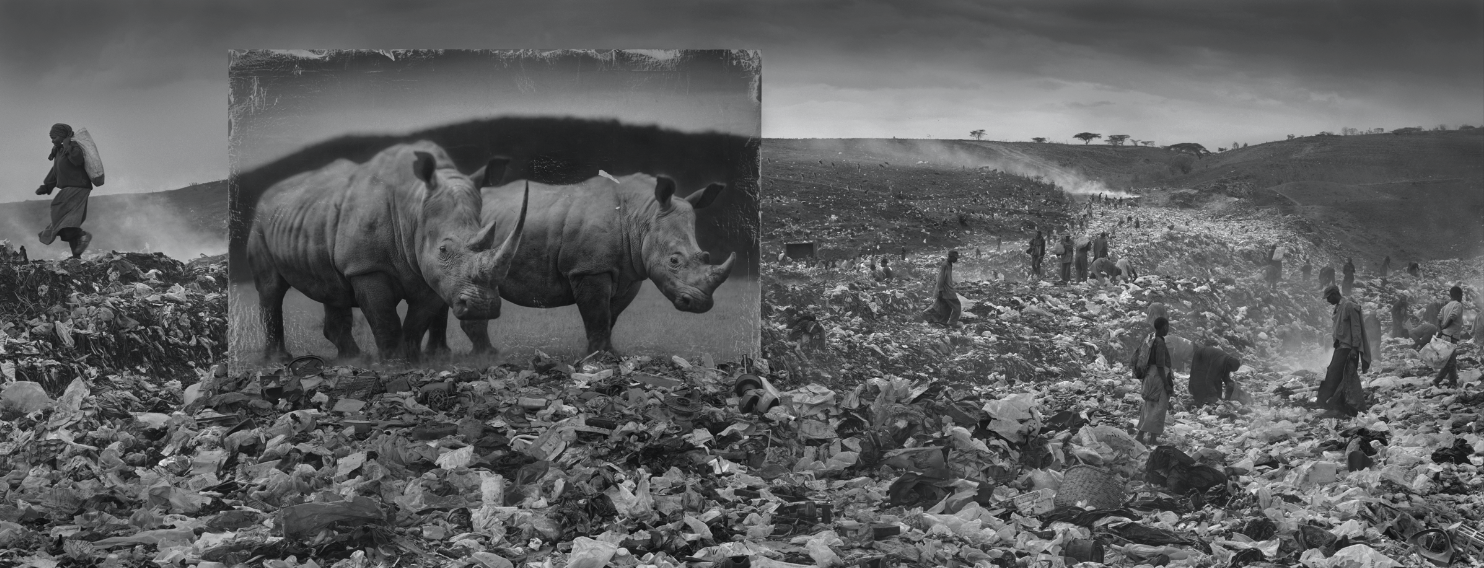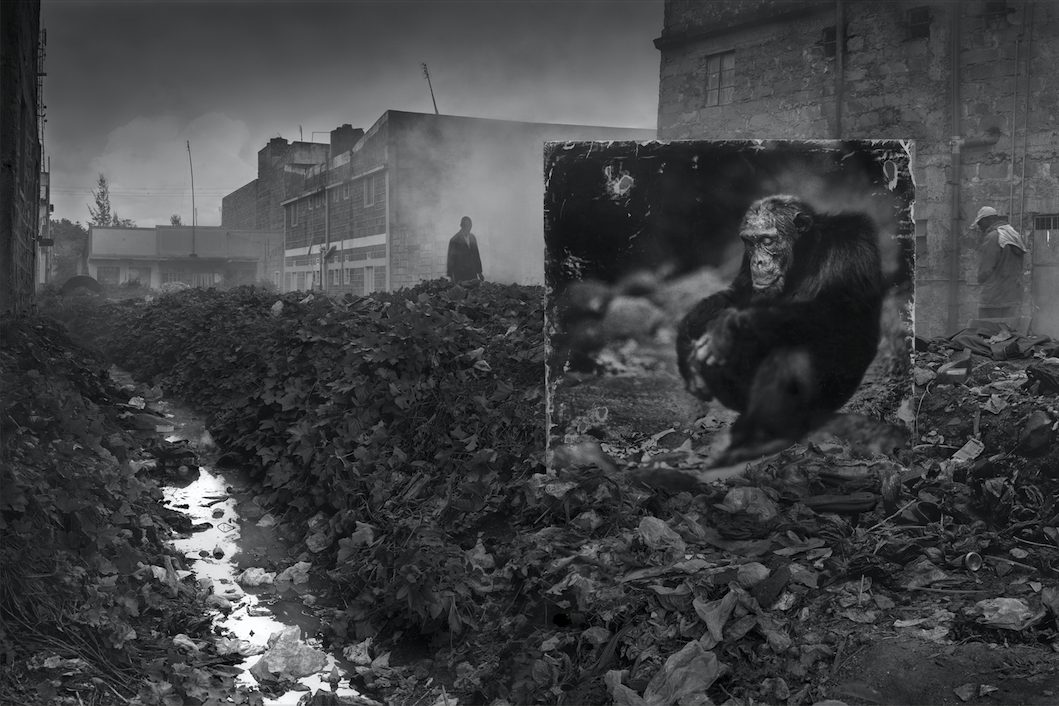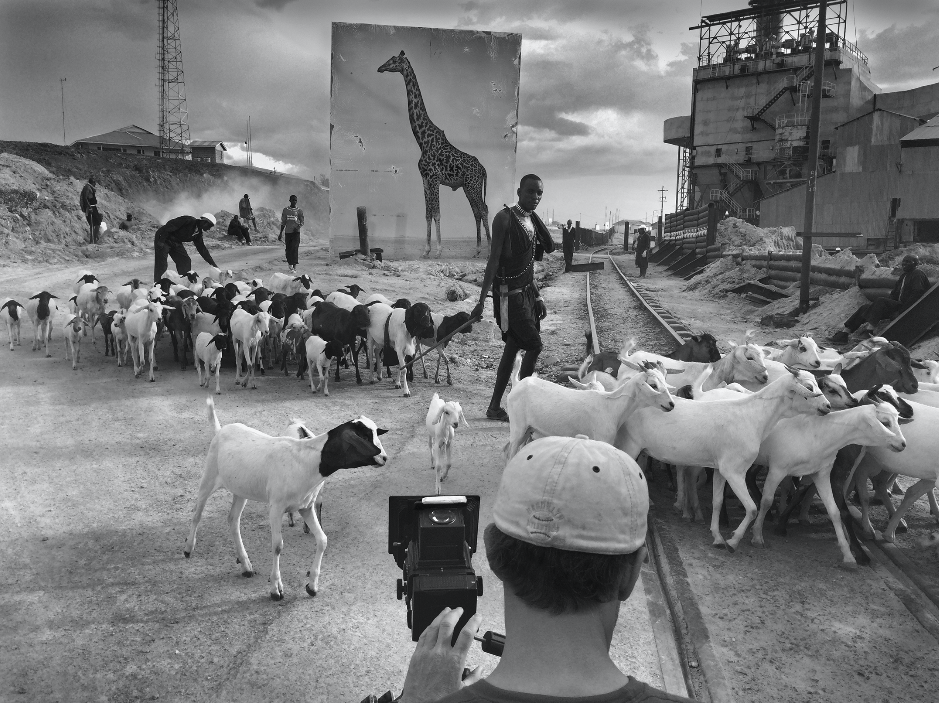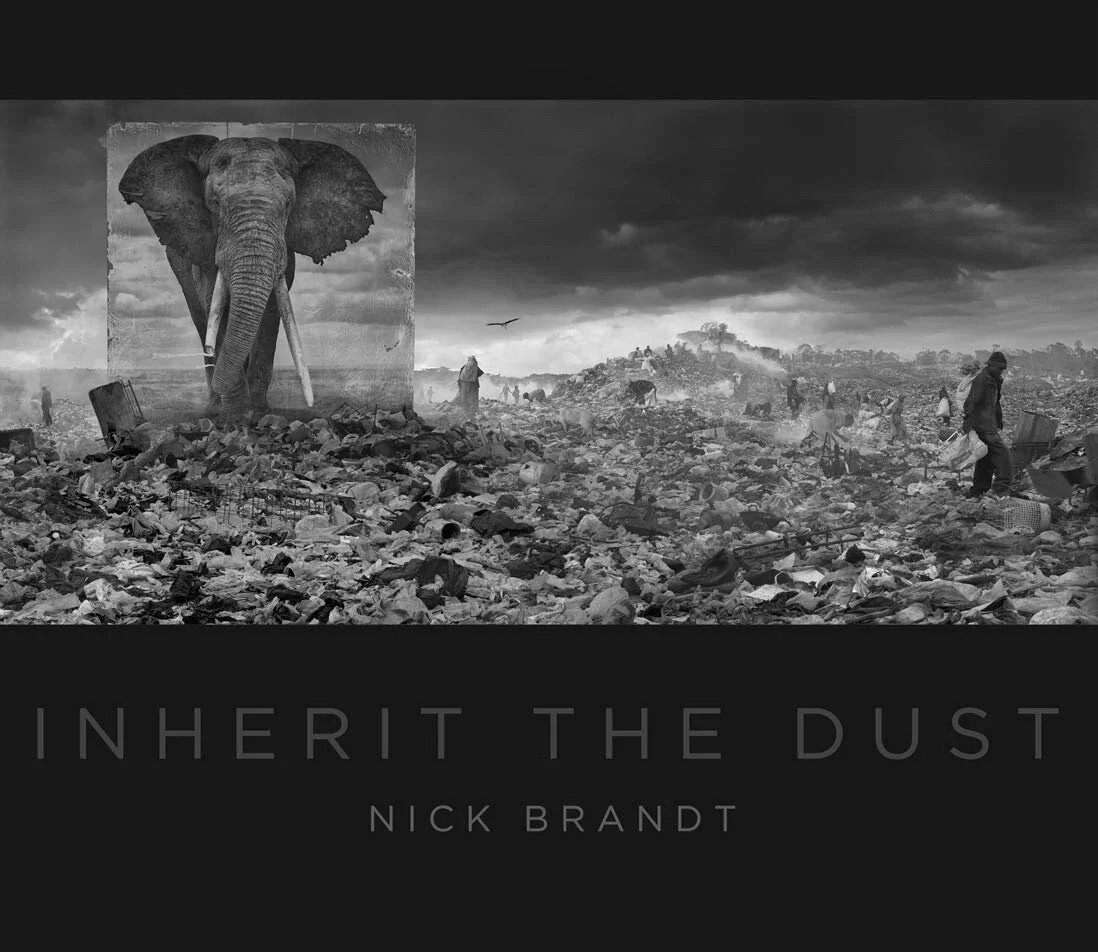Inherit the Dust 塵土繼承
Nick Brandt
© Nick Brandt, Quarry with Lion, 2014
Exhibition Dates: 13 March – 26 April 2020
展覽日期:3月13日-4月26日 2020
開幕酒會:星期四 3月12日, 6pm至9pm
相關活動:Nick Brandt 分享會: 星期六 3月28日, 11am
閉幕活動-世界地球日: 4月22日
In a series of photographic panoramas shot in East Africa, celebrated photographer Nick Brandt records the impact of men in places where animals used to roam, but no longer do. Pollution and urban encroachment is the cause of ever decreasing habitat for the natural world and loss of biodiversity.
Consumption of wildlife as deluxe delicacies, grounded into medicines or carved into luxury objects have pushed many species such as rhinos and pangolins to the brink of extinction. Since 1970, populations of thousands of animal species around the world have declined 60 percent on average, according to the World Wildlife Fund. Scientists warn that Earth’s sixth mass extinction may be underway, and man may only have 10 years to take drastic steps and protect planet’s vital plant and animal life. “Very few ecosystems are not affected by wildlife trade,” said Vincent Nijman, an anthropologist at Oxford Brookes University in Britain. “It directly impacts a very large number of species, and has a knock-on effect on many more species still.”
And its not just animals that are affected, wildlife trade comes at a huge cost to humanity too. Currently wildlife trade is the cause of a major global health scare. The most novel strain of corona virus seems to have originated from a wildlife market in Wuhan. Over 1500 people died already. The Chinese government ordered a ban on the trade of wild animals but only temporary until the epidemic is over. Activists, scientists and conservationists are pushing for a permanent ban.
A scientific report titled ’Wildlife Trade and Global Disease Emergence’ published by by Wildlife Conservation Society in 2005 states: “Since 1980, about 35 new infectious diseases have emerged in humans, about 1 every 8 months. The origin of HIV is likely linked to human consumption of nonhuman primates. Ebola hemorrhagic fever outbreaks in humans have been traced to index patient contact with infected great apes that are hunted for food. SARS-associated coronavirus has been associated with the international trade in small carnivores, and a study comparing antibody evidence of exposure to this coronavirus demonstrated a dramatic rise from low or zero prevalence of civets at farms to an approximately 80% prevalence in civets tested in markets.” The outbreak of SARS should have been a clear warning sign. Unfortunately it wasn’t.
According to the WWF, wildlife crime has become more lucrative and dangerous, involving large-scale, transnational organized criminal networks. It is now the 4th most profitable illicit trade in the world, estimated at up to US$19 billion each year.
Hong Kong until this day remains the biggest hub for wildlife trade. The problem persists due to lack of investigation and law enforcement. As per the New York Times (Feb. 2019): ‘While other countries with the political and law-enforcement capacity to fight wildlife trafficking have begun to do so, the territory’s government — which is otherwise relatively aggressive in combating corruption, organized crime and other ills — has appeared reluctant to follow suit, even as an enormous share of the illegal trade passes through the territory’s airport and shipping terminals.
This outbreak could have happened here.
Humanity can not survive without the rich biodiversity which took the planet millions of years to create; together they prosper and together they will fall. The world can not allow a minority of exotic food lovers to be the cause of extinction of species, the loss of biodiversity and cause major global health emergencies.
Confucious once said: ‘You end up where you are going if you don’t change direction.’
If we don’t change direction, our future generation will be inheriting dust.
+++
Behind the scenes…








